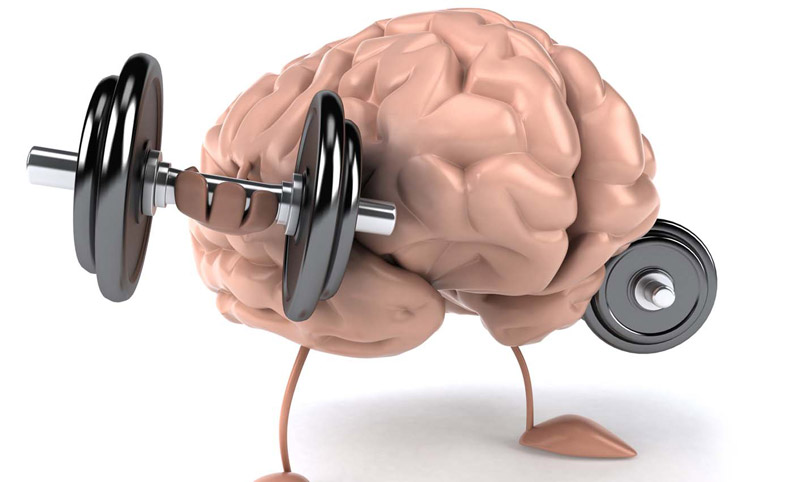
Nowadays, a growing number of patients of all ages are coming to see me because of memory loss. They do their usual online research, type in their symptoms, and then panic because they think they have early onset Alzheimer’s disease. Fortunately, this isn’t usually the case. What is it about our current, modern day lifestyle that’s leading to deteriorating memory?
Some Common Causes of (non-Alzheimer’s) Memory Loss:
1. Stress: Stress hormones like cortisol shunt blood flow away from a part of our brain called the hippocampus which creates new memories and controls our sense of direction. The hippocampus is the same part of the brain that becomes irreversibly damaged in Alzheimer’s disease, which is why stress may cause Alzheimer’s-like memory loss. Persistent stress also shuts down the frontal regions of your brain, which are your “CEO,” helping with planning, organization and execution. The good news is that when you consistently and effectively manage your stress, your memory usually improves. This is unlike the case of Alzheimer’s disease, which is a progressive, irreversible process.
2. Sleep: Sleep is becoming a lower priority as bedtimes shift later as a result of our nighttime digital addiction. Whether it’s catching up on work, personal e-mail, grooming your Facebook page, surfing the web, or watching your favorite TV shows and movies, going to sleep late is the norm today and studies show it is having an impact on every area of our health. In terms of memory, sleep allows us to process all of the data during our day and consolidate them into memories and learning experiences. Studies have shown increased recall and higher test scores in individuals who sleep more hours. Sleep less and you’ll remember less. Rather than fix the underlying habits and behaviors, many people resort to the chronic use of sleep medications which may buy them more hours, but may have negative effects on cognitive function and memory in the long run.
3. Sedentary Behavior Reduces BDNF: Exercise is one of the best brain boosters around. Increased sitting time is being linked to obesity, heart disease, death and also reduced brain function. Want direct proof? Studies show that individuals who are sedentary have reduced levels of a vital brain chemical called BDNF (brain-derived neurotropic factor). In addition, regular exercise reduces stress and the negative impact of cortisol we just discussed. So remember, exercise is never a waste of your time. It actually buys you more high quality, high energy, BDNF-boosting, productive, and creative time that you can spend at work and with your family.

4. Diet: An unhealthy diet can impact how clearly you think and how effectively you recall information. Glucose in particular is the brain’s primary fuel source, so eating foods that cause significant fluctuations in glucose levels will have a negative impact on both mood and memory. Remember, glucose doesn’t just come from sweet foods, but is also from excess carb sources like bread (white or wheat), rice (brown or white), noodles, pasta, and don’t forget the dangerous hidden sugar in processed foods called high fructose corn syrup (HFCS). Recall from my prior blog post on advanced glycated end products, how excess glucose can actually accelerate aging by causing premature degeneration in multiple organs, including the brain.
5. Insulin Resistance: Related to glucose is insulin resistance, the underlying cause of diabetes, heart disease, and a growing list of chronic health conditions including memory loss. Individuals, who are insulin resistant, cannot handle blood sugar properly and have difficulty delivering it effectively to the brain. Certain ethnic groups like South Asians have extremely high rates of insulin resistance which often manifest as a condition called metabolic syndrome. Check out the syndrome checklist on the Palo Alto Medical Foundation’s South Asian Health website. In addition, imaging studies of the brain show that insulin resistant individuals have a smaller hippocampus, the key part of the brain for memory processing.
6. Computer Overuse: Studies are just starting to come out on this, but it appears a brain that is overly reliant on technology is susceptible to reduced memory and cognitive function. Today, if we have a question or are trying to recall information, we usually have access to it instantly on our phones or computers. In the old days, individuals could actually remember at least a dozen different phone numbers, addresses, etc. Our hippocampus, which helps with memory processing, also is our internal GPS device that helps us navigate directions. That function has also been deferred to our phones and portable navigation devices. As exciting as modern technology has become, we must question if our over-reliance on high-tech tools is contributing to a weaker brain. Just like our muscles, we know if we don’t use it, you start to lose it.

7. Alcohol and Medications: Excess alcohol use can impair memory. Also discuss all prescription and over-the-counter drugs and supplements with you doctor to make sure they are not affecting your memory.
8. Other Medical Conditions: Diabetes, thyroid disorders, depression and a long list of other medical disorders can be connected to memory loss, so be sure to discuss this symptom with your doctor.
Tips to Improve Your Memory
Many of the factors necessary to protect and improve your memory are the same ones you need to reduce your risk of chronic health conditions like diabetes and heart disease.
- Exercise and stress management are key. Get more steps, try yoga, try mindfulness meditation (PAMF offers mindfulness classes), get outdoors, etc.
- Make sleep a high priority.
- Improve your diet with an emphasis on reducing sugars and excess carbohydrates. Eat more vegetables and fruits for brain-protecting antioxidants and eat healthy fats, especially fish-derived Omega-3s and monounsaturated fats (olive oil, nuts, seeds, avocados).
- Start hobbies that stimulate different parts of your brain…learn a language, an instrument, play bridge, chess, etc. Because of an increased reliance on digital devices, our brains need more exercise than ever.
- Socialize: I don’t mean online social networking! I mean non-digital, physical, face-to-face social gatherings with eye contact. Human social stimulation helps enhance brain function, so spend more of your free time with family and friends and less time with your devices. Better yet, plan outdoor active social gatherings that also include healthy food. That way you cover some of the most important components of preserving and enhancing brain function.
For persistent or progressive memory loss, consult your doctor for a thorough evaluation.





Leave a Reply